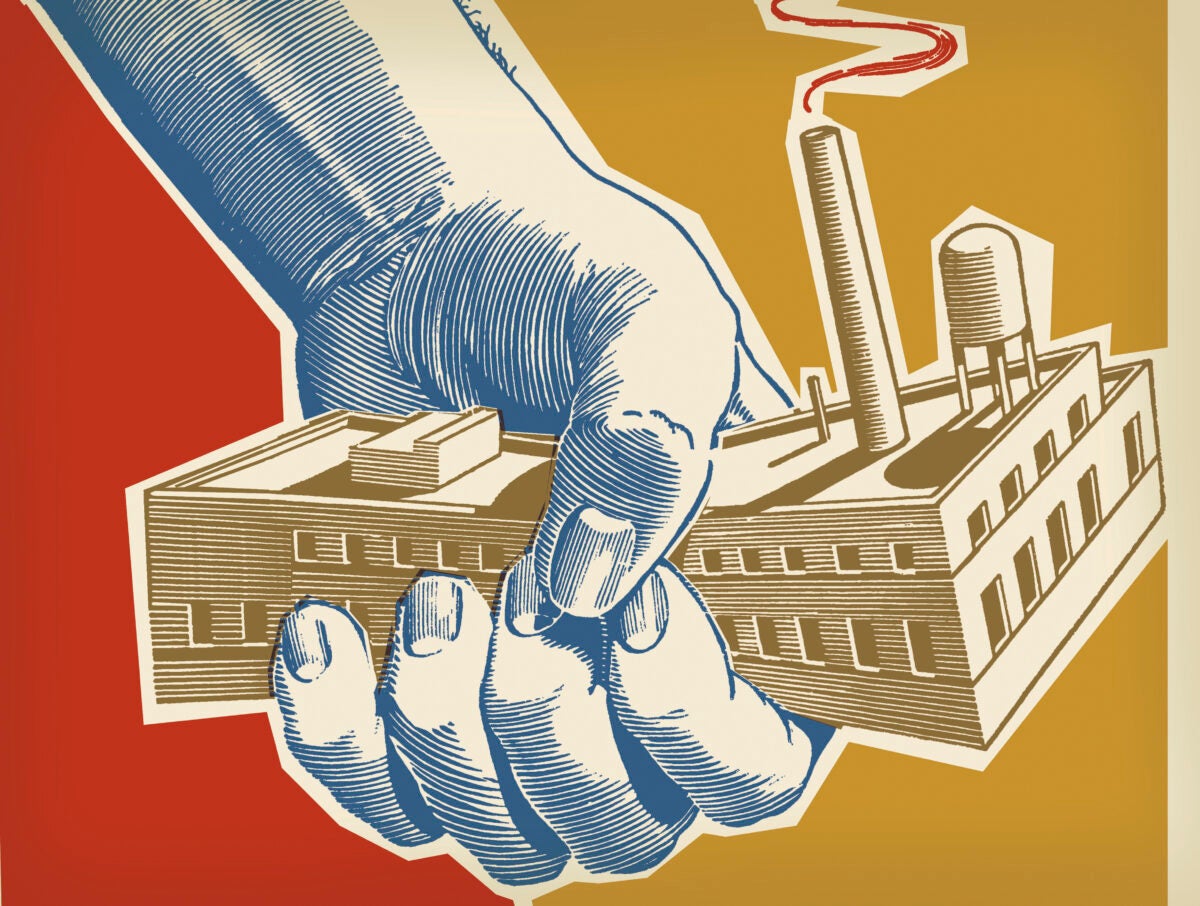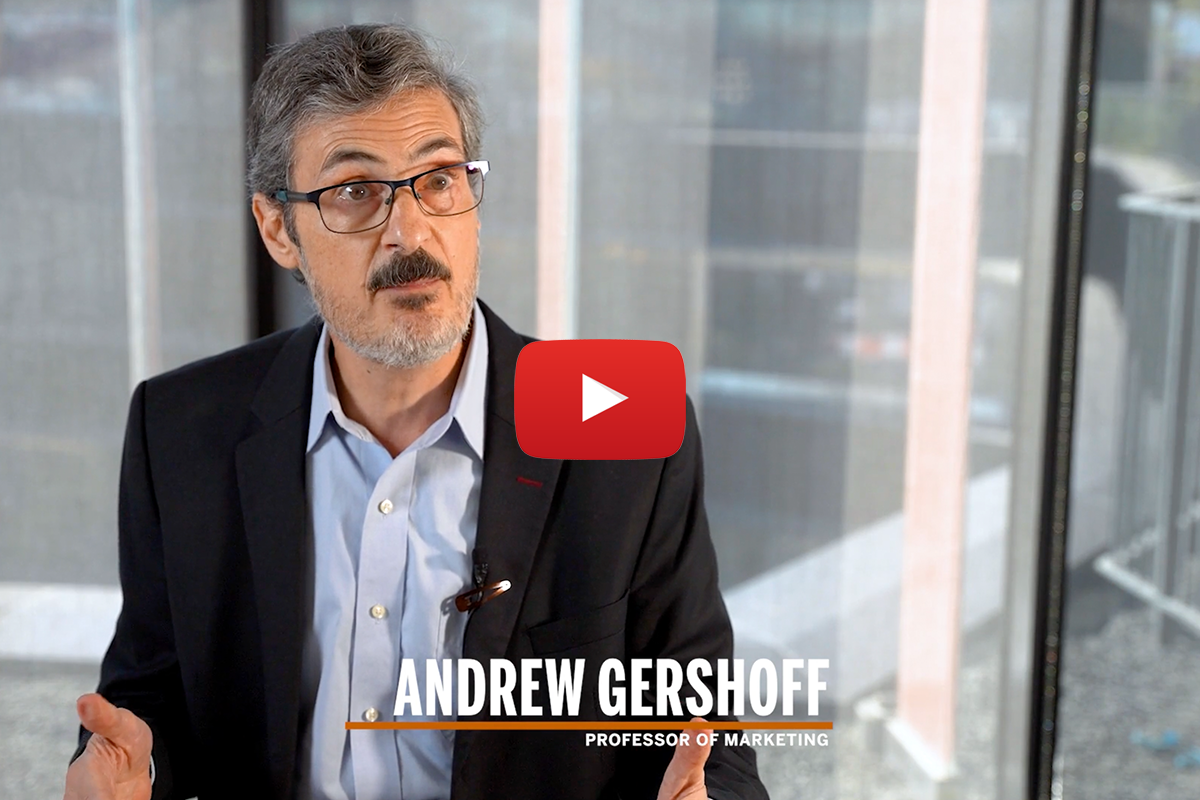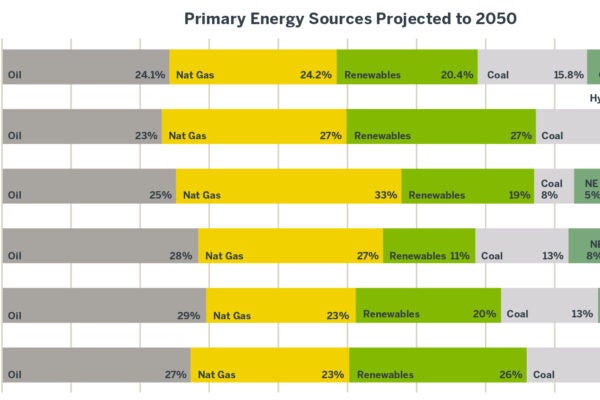Consumers Consider: Coincidence or Divine Intervention?
Belief in a higher power influences reactions to corporate crimes and punishments
Based on the research of Andrew Gershoff

A company pours toxic chemicals into a river to cut costs. Around the same time, a major storm causes damage to that company.
Coincidence?
According to new research from Andrew Gershoff, professor of marketing at Texas McCombs, the answer might depend on how strongly a consumer believes in divine intervention.
Consumers who ascribe the loss to a higher power are more likely to believe the company has paid the price for its actions, he finds. They’re also less likely to punish it by boycotting its products or deciding to fine it in a jury trial.
Such consumer reactions often shape how companies fare in a crisis, Gershoff says. “When firms commit some kind of transgression, it’s often the case that consumers want to react and punish the firm in some way.”

But when transgression is followed by loss, it can change a consumer’s moral equation, he adds. “They might say, ‘Because the punishment has already occurred, I don’t need to apply further punishment.’”
Gershoff conducted the study with former McCombs doctoral students Jae-Eun Namkoong of the University of Nevada, Reno, and Jerry Han of Sungkyunkwan University Business School in South Korea. They saw a gap in marketing research regarding how spiritual beliefs, such as in divine punishment or karma, affect consumer behavior.
“A large percentage of people in the United States and in the world identify themselves as having some level of spirituality or belief in a higher power,” Gershoff says. “But there isn’t a great deal of research in marketing that looks at spiritual factors and how they might influence the ways in which people make decisions and process information.”
Divine Intervention — or Not
In four studies totaling 844 participants, the researchers showed participants fictional scenarios in which a corporate offense, such as a chemical spill, was followed by an accident, such as storm damage. They examined the reactions of people depending on their degree of belief in a higher power.
To assess the effects of such beliefs, the researchers manipulated a key variable: coincidence, such as both events occurring in the same location or profits and losses being similar amounts. They reasoned that strong believers might be more likely to attribute coincidence to divine causes, reducing their desire to further punish the company.
Says Gershoff, “Those with a stronger belief in a higher power are more likely to look at high coincidence events and say, ‘Well, the firm has already been punished, paid its dues, because the higher power has intervened.’”
That’s the effect he and his co-authors found. When strong believers saw high levels of coincidence, they chose lower levels of punishment. Compared with weak believers, they fined a hypothetical company $40,000 less, on a scale up to $2 million.
On the other hand, when coincidence appeared low — suggesting a higher power was not involved — strong believers recommended fines that were no different, and sometimes even higher, than did weak believers. They felt, Gershoff suggests, that the company had not been punished enough.
Countering Manipulation
The researchers acknowledge that their findings could be misused. Companies caught in wrongdoing might try to reduce public outrage by strategically publicizing their misfortunes and losses.
But they hope their findings might help to deter such manipulation by making consumers and policymakers more aware of it.
Gershoff encourages consumers to examine their belief systems before taking actions, such as deciding whether to boycott a company. “We want to be sure, if fairness is the goal, that we’re aware of any potential biases,” he says.
He says that policymakers, too, might make more effective decisions about how severely to punish a company, by considering how different groups of consumers might react to such punishments.
“Our goal here isn’t to try to help marketers commit transgressions and get away with transgressions in any way,” Gershoff says. “It’s about thinking, ‘How do we look at events and try to determine whether some sort of intervention might be necessary?’”
“A Sign of Divine Intervention: Supernatural Interpretation of Coincidence Lowers Consumer Punishment of Unethical Firms” is published in Journal of Consumer Behaviour.
Story by Suzi Morales
About this Post
Share:


